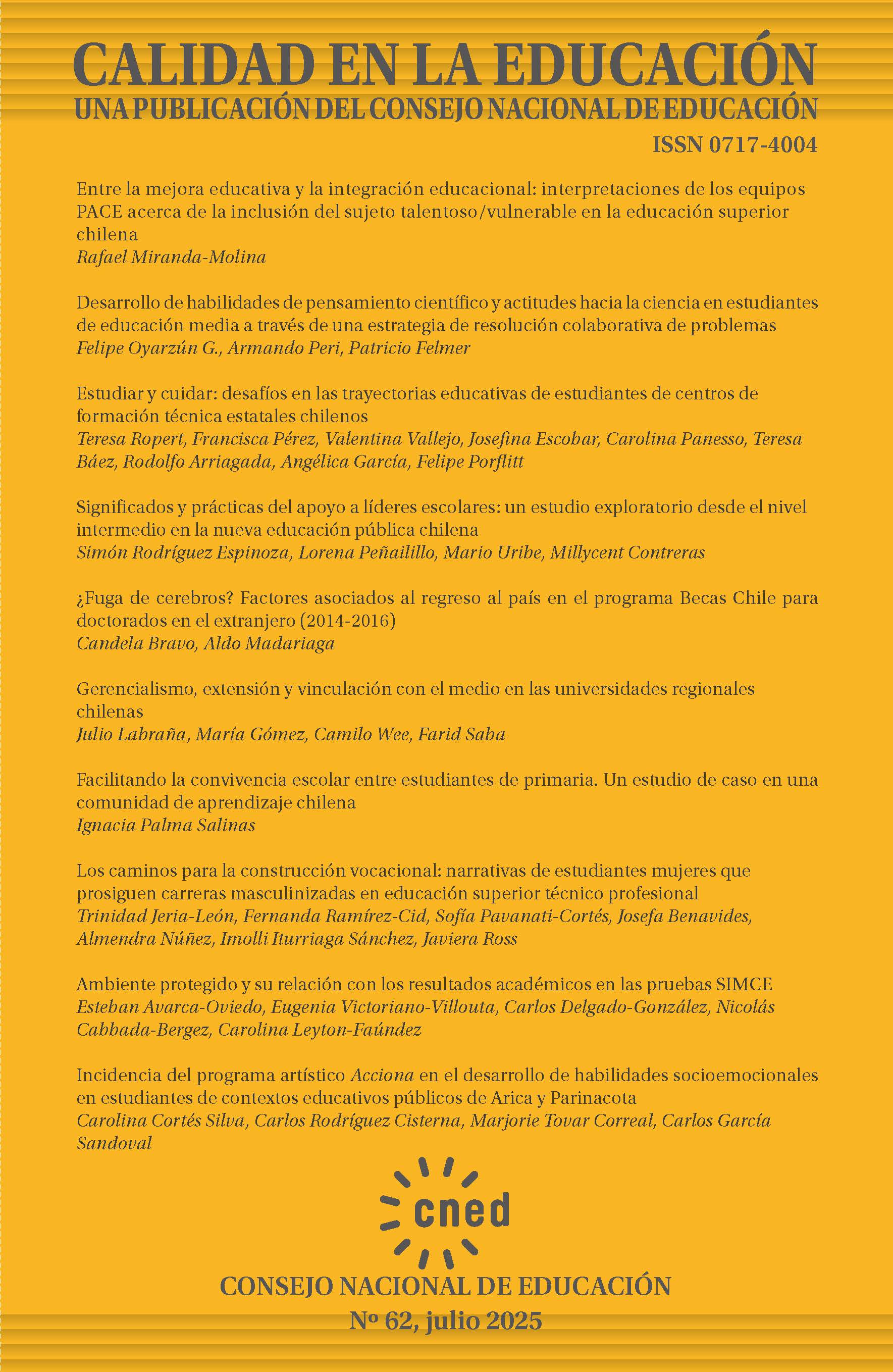Fostering School Coexistence among Primary School Students: A Case Study in a Chilean Learning Community
DOI:
https://doi.org/10.31619/caledu.n62.1482Keywords:
Learning Communities, School Coexistence, Egalitarian Dialogue, Equality of Differences, SolidarityAbstract
School coexistence is a central element for improving educational quality and for enabling children to grow up in environments free from violence. The Learning Communities project has been widely studied, as it shows how the principles of dialogic learning and Successful Educational Actions contribute to strengthening social cohesion in diverse educational settings. However, the effects of its implementation in Chile have yet to be sufficiently explored. Through an analysis based on the principles of dialogic learning, this qualitative case study explores how the implementation of Learning Communities influences student coexistence among students in a primary school in the country. The communicative methodology was used, and communicative daily life stories were conducted with students, along with communicative discussion groups involving students, teachers, and mothers. The data analysis shows how egalitarian dialogue, solidarity, and the equality of differences are principles of dialogic learning that contribute to the improvement of school coexistence in the Learning Community studied. The study concludes with reflections on the potential of these principles for understanding school coexistence grounded in participation and inclusion, and offers evidence of the role that families can play in its development.
Downloads
Published
Issue
Section
License

This work is licensed under a Creative Commons Attribution 4.0 International License.
Authors retain their Copyright and only transfer a part of these to the journal, accepting the following conditions:
Authors keep their rights as authors and guarantee the right to the journal for the first publication of their work, which is simultaneously subject to the Creative Commons Attribution license allowing third parties to share the study accrediting the author and first publication in this journal.
Authors may adopt other non-exclusive license agreements for distribution of the version of the published work (e.g. inclusion in an institutional thematic file or publication in a monographic volume) accrediting initial publication in this journal.
Authors are allowed and recommended to share their work over the Internet (e.g. in institutional telematic files or their website) before and during the submission process, which may lead to interesting exchanges and increased citation of the published work. (See The effect of open access).

